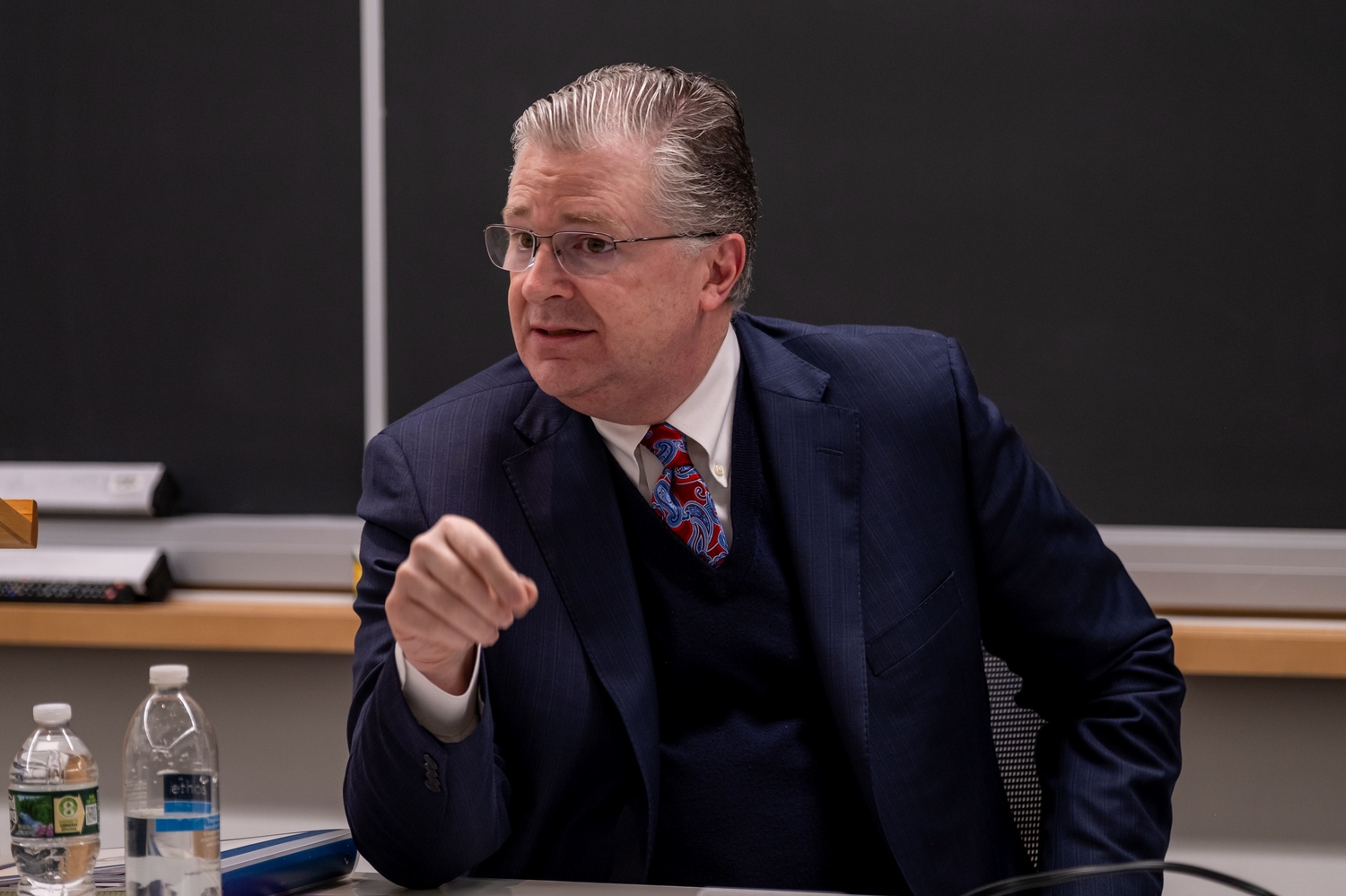
News
Nearly 200 Harvard Affiliates Rally on Widener Steps To Protest Arrest of Columbia Student

News
CPS Will Increase Staffing At Schools Receiving Kennedy-Longfellow Students

News
‘Feels Like Christmas’: Freshmen Revel in Annual Housing Day Festivities

News
Susan Wolf Delivers 2025 Mala Soloman Kamm Lecture in Ethics

News
Harvard Law School Students Pass Referendum Urging University To Divest From Israel
Assistant Secretary of State Kritenbrink Expresses Concern Over North Korean Troops in Russia

Daniel J. Kritenbrink, the Biden administration’s Assistant Secretary of State for East Asian and Pacific Affairs, expressed concern over the growing military cooperation between Russia and North Korea.
The seminar, which was hosted by the Weatherhead Center for International Affairs on Monday, was moderated by Harvard Law School professor Mark Wu.
On numerous occasions, Kritenbrink referenced the surge of nearly 10,000 North Korean troops entering Russia, saying he found it “deeply disturbing and even shocking.”
“This is a truly escalatory and, I think, dangerous move,” he said. “Our only choice going forward is to continue to do everything we can to deter North Korea, to impose costs on North Korea and Russia.”
Kritenbrink also expressed unease at the growing nexus between Russia and China, citing “Chinese de facto support for Russia’s war against Ukraine” and his belief that “the two countries essentially intend to dominate their near adjacent areas.”
While Kritenbrink is paying attention in Eastern Europe, he is also particularly concerned with Chinese expansion.
“China’s rise is the challenge of our time,” Kritenbrink said, quoting Secretary of State Antony J. Blinken ’84 as “China being the only competitor with both the intent and the capability to reshape the international order.”
Still, Kritenbrink maintained that the U.S. is politically well situated in the Indo-Pacific.
“America’s future security and prosperity are inextricably intertwined with this region,” he said. “Our security treaty alliances across the Indo-Pacific region are stronger than they’ve ever been before.”
Kritenbrink applauded “allies, partners, and friends” in the region who have worked diligently with the U.S. to advance shared interests and highlighted “unprecedented trilateral cooperation between Washington, Seoul, and Tokyo.”
Looking towards the future of U.S. foreign policy in the Indo-Pacific, Kritenbrink expressed confidence in the continuity of American engagement under the new presidential administration.
“There is a strong bipartisan support in the United States for our approach to the Indo-Pacific,” he said, citing the $2 trillion of two-way trade between the United States and Indo-Pacific partners.
Kritenbrink believes the U.S. increasingly approaches its competition with China from “a position of confidence.” By working with allied countries, like Japan and South Korea, Kritenbrink hopes to outcompete China in the Indo-Pacific theater, but acknowledges the immense work such a task will require.
“We’re Americans. We’re capitalists. We embrace competition. Competition is not a dirty word,” he said. “Intense competition requires intense diplomacy.”
Want to keep up with breaking news? Subscribe to our email newsletter.
Most Read
From Our Advertisers

Over 300+ courses at prestigious colleges and universities in the US and UK are at your disposal.

With innovative financial tools combined with financial education, Collegiate empowers students to take control of their finances and build confidence in their money management skills.

Serve as a proctor for Harvard Summer School (HSS) students, either in the Secondary School Program (SSP), General Program (GP), or Pre-College Program.

With an increasingly competitive Law School admissions process, it's important to understand what makes an applicant stand out.

Welcome to your one-stop gifting destination for men and women—it's like your neighborhood holiday shop, but way cooler.

Admit Expert is a premium MBA admissions consulting company, helping candidates secure admission to top B-schools across the globe with significant scholarships.
